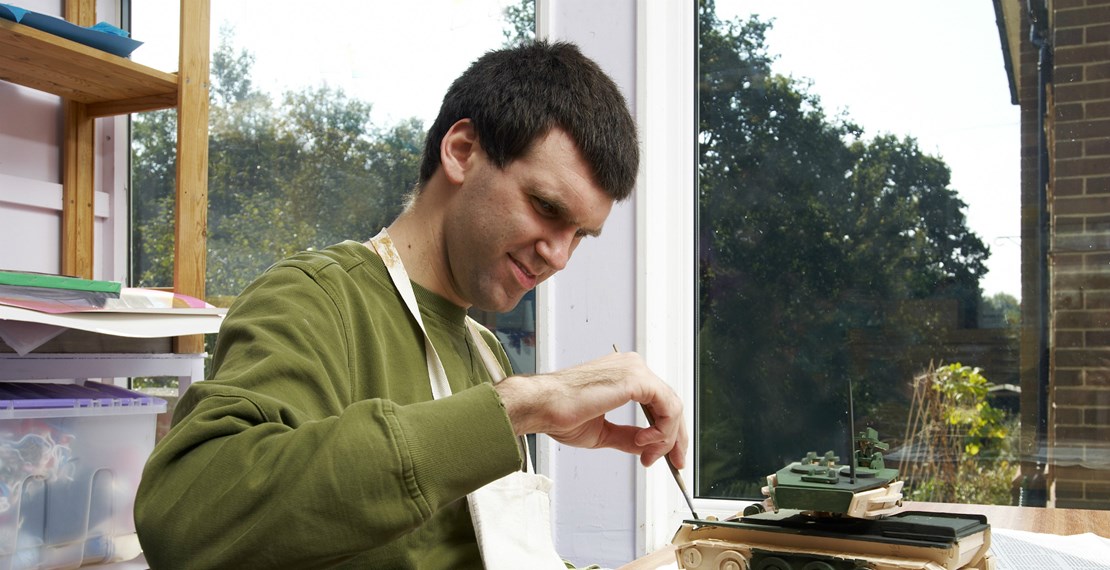Building community-based support for people with learning disabilities and autism has to start with the individual.
Following the serious neglect and abuse suffered by adults with learning disabilities and autism at the Winterbourne View hospital in South Gloucestershire, it was clear that services needed to be radically transformed.
In partnership with the Clinical Commissioning Groups (CCGs) and local authorities across Coventry and Warwickshire, we took an in-depth look at how services for those with learning disabilities and autism are commissioned and delivered, with a view to making sustainable changes that would improve care and support in the longer term.
The Transforming Care for People with Learning Disabilities and Autism project has delivered a joint strategy and a new model of care which will improve outcomes for people with complex learning disabilities and/or autism well into the future.
Developing a joint strategy
Initially, we worked with CCGs and local authorities in the region to develop a joint strategy, starting with a full day ‘accelerated learning event’. This addressed issues such as the sharp division between health and social care, multiple assessments by a number of agencies and a reliance on impatient beds.
The facilitated sessions encouraged participants to consider what is meant by good service, and resulted in an overwhelming shared commitment to the following objectives:
- Reducing length of stay and reliance on inpatient care
- Moving people closer to home
- Developing the local community market
- Developing a sub-regional plan to address the needs of children and adults with complex needs
- Joining up the assessment of need with health and social care.
The strategy was tested with service users before being endorsed by the local Health and Wellbeing Boards.
Detailed engagement to develop a new model of care
We worked with Coventry and Warwickshire Partnership Trust (CWPT) as the primary provider, to help develop a business case for a new model of care. Specifically, this included understanding local requirements by focusing on a small number of individuals who have highly complex needs and are at risk of inpatient admission, and scoping a service change which would result in a reduction in assessment and treatment beds through moving resources into the community.
Looking at individual case studies, we held a series of small stakeholder sessions to delve deeper into the issues, asking participants to consider what could have prevented the hospital admissions in each case. Crucially the emphasis was on actions rather than roles and organisations, genuinely putting the patient at the centre of developing solutions.
The outputs were used to develop an outline model of care which focused on improving outcomes, including positive living in the community, better physical and mental health and fewer and shorter admissions to hospital. The model was tested again with service users and other stakeholders, while an independent study looked at the challenge of building the local provider market to support the most vulnerable people.
Piloting the new model
We tested the model of care in a pilot with a complex service user in his 50s with a history of multiple hospital admissions. The pilot demonstrated that seemingly small changes can have a significant impact on the wellbeing of people with severe learning disabilities and autism. Quick assessment and action to provide extra support can address issues before they have time to escalate, which requires front line staff to be supported to spot triggers early and for professionals to work collaboratively in the best interests of the patient.
Monitoring progress
A Learning Disability and Autism Commissioners Group has been set up, bringing together all three CCGs and the local councils to oversee progress on the joint plan as well as broader work across learning disabilities. The group reports regularly to the Joint Commissioning Boards for Warwickshire and Coventry. A Transforming Care Clinical Review Group also oversees the progress of individual placements and facilitates the discharge of the remaining CCG registered inpatients.
Wider benefits
We are using the insight from this project to create an ‘at risk of admissions register’ which would enable all agencies working with individuals to spot the signs early and intervene with additional support to prevent problems escalating in the future. There has also been a positive shift in caring for people closer to home. This means that as well as being cared for in the most appropriate setting, people receive regular reviews and have easier access to a wider support network, such as friends and family.
Next steps
With an outline model of care in place, we are clear what we need to do and have been seeking transition funding to enable providers to grow the appropriate services before any closures of treatment beds, ensuring people are supported properly. However, while we must seize the momentum, the pace of change needs to allow for alternative community-based services to grow alongside the closure of beds so that complex cases do not fall through the gaps.
We can only make this a success if there is collaboration across commissioners, clinical and care providers, social care and front line staff, creating a culture which breaks down barriers between professionals and focuses on the needs of the individual.
Read more about our work to transform services and models of care here.

